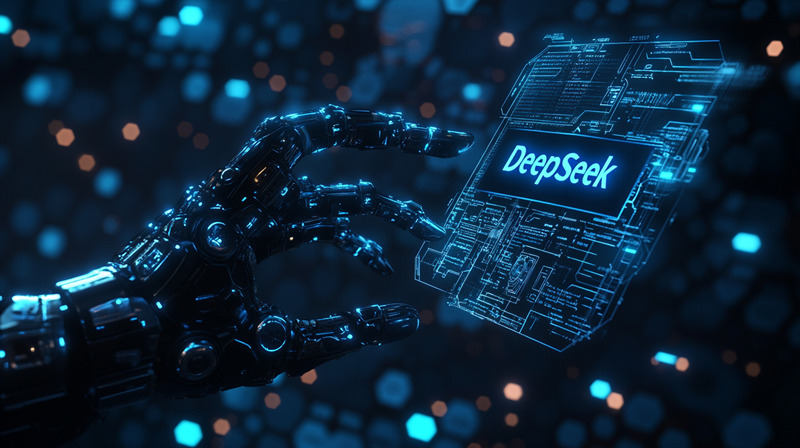Anthropic CEO Dario Amodei recently published a 15,000-word article expounding on his optimistic view of the future of artificial intelligence (AI). He explicitly stated that he is not pessimistic about AI, but believes that as long as the risks posed by AI are properly managed, the future will be filled with prosperity and social progress. Although he criticized some overly optimistic AI companies in the article, his perspective is not without its optimistic tones.
Amodei predicts that by 2026, a "powerful AI" will emerge, whose intelligence in multiple fields will surpass that of Nobel Prize winners, capable of completing complex tasks such as proving unsolved mathematical theorems and creating outstanding novels. He believes that this AI will be able to control software and hardware, and even replace humans in many tasks, performing better.

Image source note: The image was generated by AI, provided by the image licensing service Midjourney
He described the potential capabilities of this AI: "This AI can engage in various behaviors, communication, or remote operations, including acting on the internet, guiding humans, ordering materials, directing experiments, watching and making videos, and more." He further pointed out that this AI will have no physical form but can control existing physical tools, robots, or experimental equipment through computers, and even design robots or devices for its own use.
However, realizing this vision requires overcoming numerous challenges. Current AI models cannot "think" in ways we understand, but rather replicate patterns from training data. Even if the AI industry can quickly solve the issue of human-like thinking, whether robotics can keep up to enable AI to perform experiments, manufacture its own tools, etc., remains a question.
Despite this, Amodei is full of confidence for the future. He predicts that within the next 7 to 12 years, AI will help treat almost all infectious diseases, eliminate most cancers, cure genetic diseases, and prevent Alzheimer's disease at an early stage. He even predicts that within the next 5 to 10 years, AI will be able to develop drugs for conditions such as post-traumatic stress disorder, depression, schizophrenia, and addiction, or prevent them through embryo screening. Additionally, drugs developed by AI can adjust cognitive functions and emotional states, helping our brains perform better and enriching our daily experiences.
If these predictions come true, Amodei expects human average lifespan to double, reaching 150 years. He calls this period the "compressed 21st century," where all biological and medical advancements that should have been achieved within the 21st century will be realized within a few years after the development of powerful AI.
However, these predictions seem overly exaggerated. Currently, AI has not brought significant changes in the medical field, and its application in healthcare carries biases and risks, which may be difficult to implement in existing clinical and laboratory environments. Suggesting that these issues will be resolved within a decade sounds almost unrealistic.
Amodei also claims that AI can solve global hunger, reverse climate change, and transform the economies of most developing countries. He even believes that AI can raise the GDP per capita in sub-Saharan Africa to the level of China's within 5 to 10 years.
These statements sound very bold, but they are somewhat similar to the claims of followers of the "Singularity" movement. Amodei acknowledges that achieving all this would require significant efforts in global health, charity, and political advocacy, which he believes will happen because it aligns with the world's best economic interests.
Amodei briefly mentioned the potential threats of AI to society and proposed that democratic countries should unite to ensure the security of AI supply chains, preventing hostile forces from obtaining the means to produce powerful AI for harmful activities. He also mentioned that if AI falls into "the hands of justice," it could weaken oppressive governments and reduce biases in the legal system.
He wrote: "A truly mature and successful AI implementation has the potential to reduce biases and bring fairer outcomes for everyone."
However, if AI takes over all jobs and does them better, could humanity's economy be in trouble? Amodei acknowledges that it could be, stating that society would then have to discuss how the economy should be organized. But he did not provide any specific solutions.
At the end of his article, Amodei posits that AI is just a technological accelerator, and humans naturally lean towards rule of law, democracy, and enlightenment values. But in doing so, he overlooks many costs of AI, including its significant environmental impact and issues of inequality. Nobel Laureate in Economics Joseph Stiglitz and others have pointed out that the labor market upheaval caused by AI could further concentrate wealth in the hands of a few companies, leaving workers even more powerless.
It is worth noting that Amodei's article was published at a timely moment, as Anthropic is reportedly raising billions of dollars in venture capital. This could be a coincidence, but it could also be hinting at something. After all, like any CEO, Amodei has a product to promote, and his product happens to be "saving the world."









